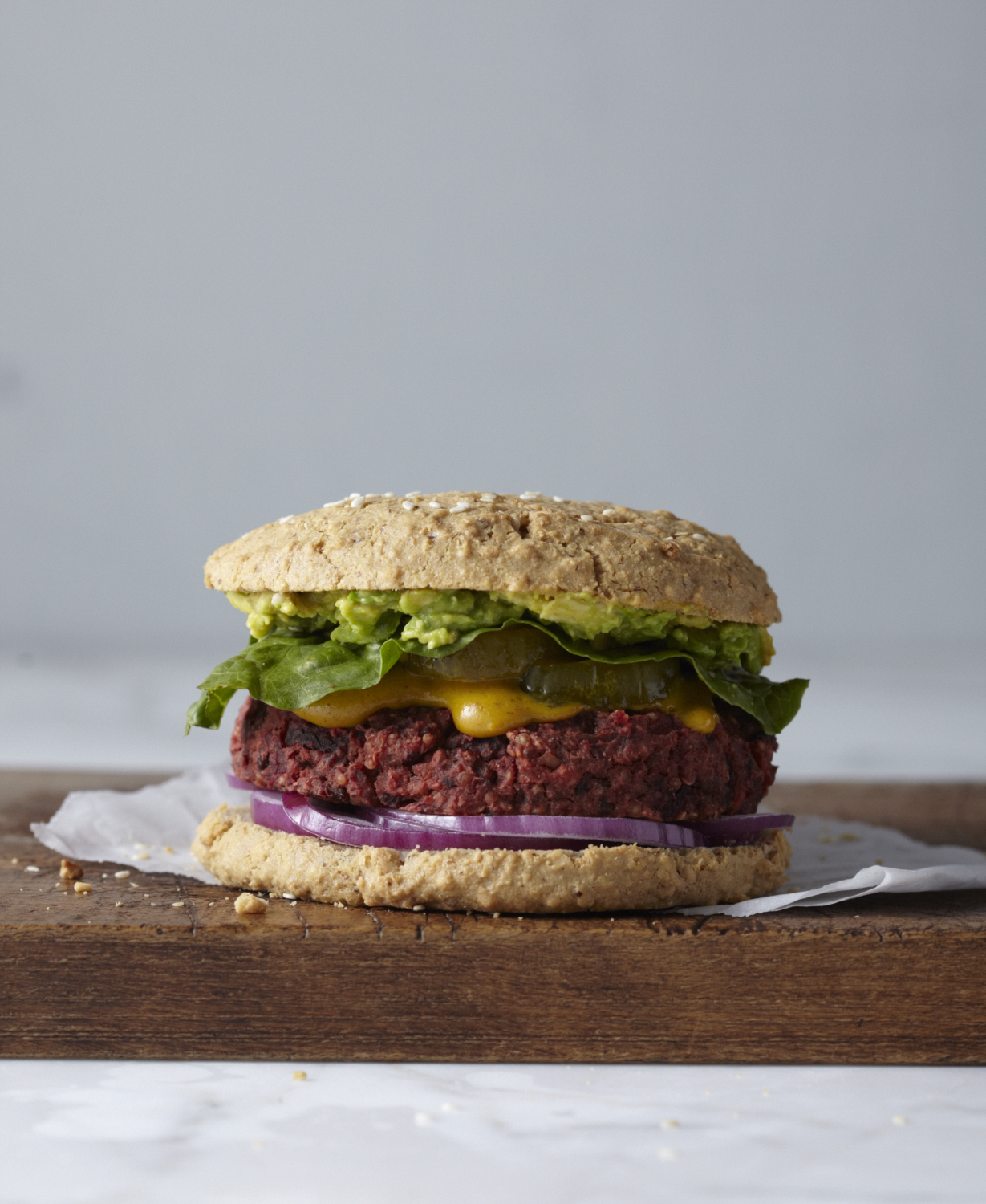The Impossible Burger is often touted as the only plant-based burger that bleeds.
With its meat-like taste, texture, and appearance, the Impossible Burger is a popular new ingredient that has begun generating quite a bit of buzz within the food industry. In fact, it has quickly secured a slot on the menus of restaurants around the country as an easy and effortless vegetarian option. Now being served up everywhere from steakhouses to fast food restaurants, the Impossible Burger has started gaining widespread popularity among veteran vegans and plant-based beginners alike.
But what is the Impossible Burger? And is it actually good for you or are you better off going for the real deal instead? Here’s what you need to know.
What Is the Impossible Burger?
The Impossible Burger is a type of veggie burger that’s notable for its unique taste and appearance. Even though it’s totally meatless, it has a flavor that’s remarkably close to a regular hamburger. Interestingly enough, the similarities are so strong that the burger even “bleeds” when you cut it, just like real meat.
The product was developed by a company called Impossible Foods, which is a startup based in Silicon Valley, California. CEO Patrick Brown is a medical doctor and researcher who founded the company with a mission to promote environmental sustainability by reducing animal agriculture. For several years, his teams conducted extensive research to evaluate the unique properties of meat at a molecular level.
Through this research, scientists discovered a compound called soy leghemoglobin. Although it’s totally plant-based, soy leghemoblobin contains an iron-containing compound called heme, which allows it to take on a taste that’s surprisingly similar to meat. Along with soy leghemoglobin, the Impossible Burger also contains ingredients like soy protein concentration, potato protein, coconut oil, and sunflower oil (1).
Is the Impossible Burger Healthy?
There’s no doubt about the environmental benefits of the Impossible Burger. On their website, Impossible Foods claims that it takes 96% less land and 87% less water to produce one Impossible Burger compared to a regular hamburger. Plus, it generates 89% fewer emissions, which can have a huge, long-lasting impact on the health of the environment (2).
It also boasts a similar nutrient profile as regular burgers. A single four-ounce patty contains about 240 calories, 19 grams of protein, 3 grams of fiber, and plenty of B-vitamins, iron, calcium, zinc, and phosphorus (3).
However, the biggest concern that many consumers have with the Impossible Burger is with its star ingredient: soy leghemoglobin. According to the FDA, soy leghemoglobin has achieved GRAS status, which means that it’s generally recognized as safe (4). Studies conducted by researchers have reached a similar conclusion, with one review noting that it’s unlikely to present a risk of toxicity to consumers (5). Still, these studies are focused on the short-term effects of the ingredient; more research is needed to understand whether soy leghemoglobin may have any serious effects on health in the long-run.
The heme found in the Impossible Burger is also derived from genetically modified sources. Whether genetically modified organisms (GMOs) are unhealthy or not is up for debate, but many people choose to avoid or limit GMO exposure due to concerns about allergic reactions, antibiotic resistance, and even cancer (6). Plus, with a lack of research on the long-term effects of GMO consumption, it remains a subject of heated controversy within the scientific community.
Furthermore, unlike other veggie burgers on the market, the Impossible Burger is pumped full of processed ingredients and vegetable oils. Even a quick scan of the back of the package can leave you wondering whether you’re reading an ingredients label or a science textbook.
Selecting a healthy, whole food-based veggie burger instead may be a better option in many cases, as it can supply a range of important nutrients your body needs, including fiber, antioxidants, vitamins, and minerals. Alternatively, try making your own at home! Check out my recipes for Chickpea Burgers or Blissed Out Black Bean Burger if you’re looking for an easy way to get started.
NS Recommends
The Impossible Burger is a quick, tasty, and convenient product that can help ease the transition into plant-based eating. It’s also a good alternative to burgers and can provide a similar set of nutrients, with a fraction of the environmental impact.
However, it’s full of processed ingredients and preservatives, including GMOs that could potentially come with some scary health consequences in the long-run. And with plenty of other options out there for healthy, whole food-based burgers, there are tons of ways you can cut back on meat consumption while still getting the nutrients you need–along with less of the junk that you don’t.
Therefore, while it’s okay to enjoy the Impossible Burger from time to time, it’s best to balance it with other plant-based proteins, including tofu, tempeh, beans, lentils, nuts, and seeds.
The post What Is the Impossible Burger and Is It Healthy? appeared first on Nutrition Stripped.
from Nutrition Stripped http://bit.ly/2WqFKO4

Post a Comment